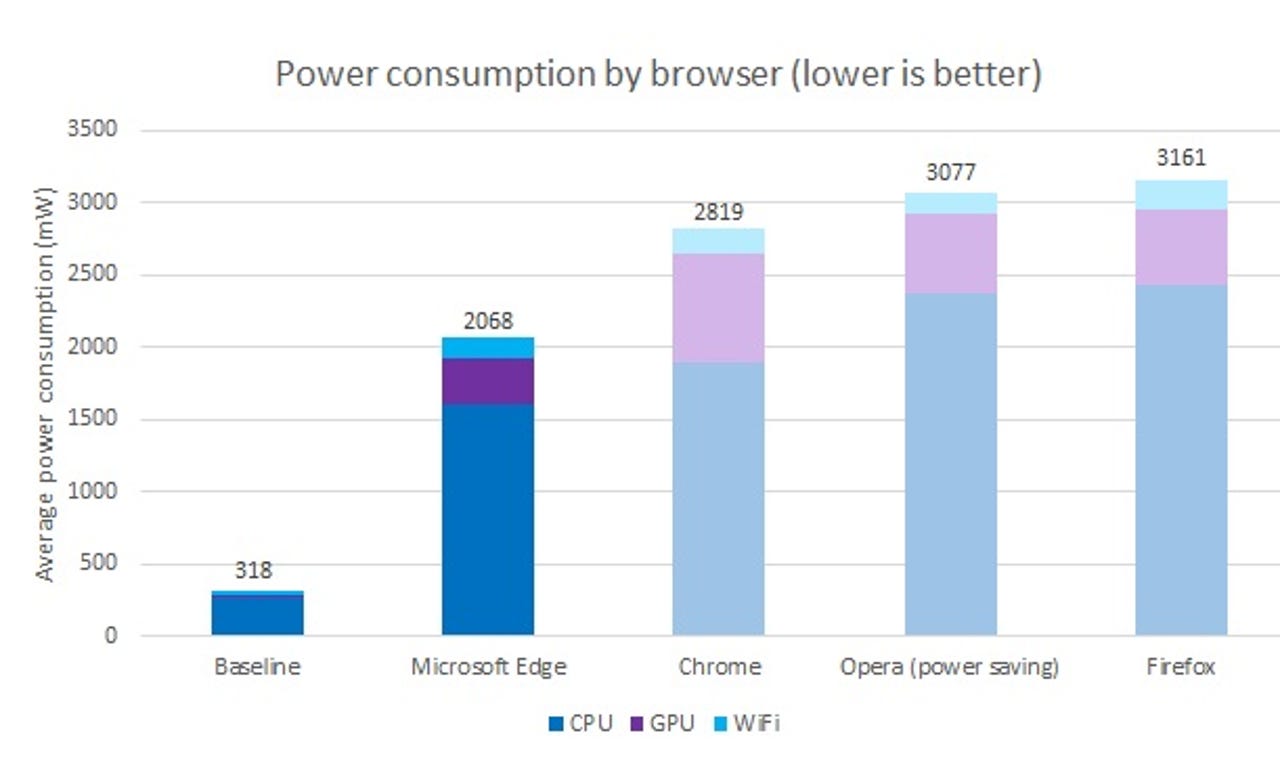Microsoft kicks off campaign touting battery savings of Windows 10's Edge browser

Microsoft is kicking off a campaign touting the power-saving capabilities of its Edge as a key selling point for its built-in Windows 10 browser.
On June 20, company officials are publicizing results of its own controlled lab tests which show Edge bests other browsers, including Chrome, Opera and Firefox. Microsoft execs also blogged about the processes and the lab set-up the company used to test the battery life of Windows machines running various browsers.

When opening web sites, scrolling through articles, watching videos and opening new tabs across commonly used sites (including Facebook, Google, YouTube, Amazon Wikipedia and more), Windows 10 users will get up to 36 percent to 35 percent more battery life if they use Edge, Microsoft officials said.
See also
In Microsoft's streaming video tests, Edge outlasted Chrome and Firefox with between 17 percent and 70 percent more battery life, according to company officials.
Microsoft is kicking off its Edge battery campaign just a month ahead of its expected release of the Windows 10 Anniversary Update. That Windows 10 refresh "will include even more power-saving improvements, using fewer CPU cycles, consuming less memory, and minimizing the impact of background activity and peripheral content like Flash advertisements," officials said in today's blog post.
Only about one in four Windows 10 users are currently running Edge, even though the browser is bundled with Windows 10 by default, as my ZDNet colleague Ed Bott reported recently. In part, this may be due to the current lack of support for widely used ad-blocking and password-saving extensions in Edge -- something Microsoft will remedy with the Anniversary Update.
But there may be other factors at play here. I've been using Windows 10 on a couple of different laptops and have found Edge to lag on a number of the sites I frequent when compared to Google Chrome. Edge's scrolling and readability is great on Windows 10, but I've felt that Edge was slow to load a number of both my new and frequented sites, in spite of previous Microsoft claims about Edge's speed. I've also continue to run into some sites that don't display correctly on Edge.
I personally haven't attempted to measure in any way battery life when using Chrome vs. Edge. But Google's battery-eating problems with Chrome have been documented widely and, at least partially, addressed. Opera recently introduced a new power-saving mode meant to improve battery life by up to 50 percent, according to company officials.